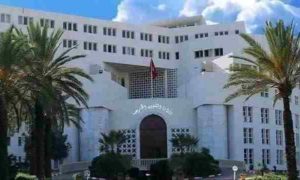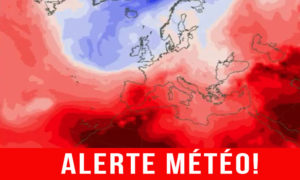Tunisia has been passing through a significant socio-economic crisis for many years which has been severely exacerbated by the repercussions of the Covid-19 pandemic raging since March 2020. In addition to the hard economic situation, there is the severe problem of the frequently remarkable scarcity of water resources, a particularly poorly managed wealth of which 80% is directed to irrigated agriculture on only 4% of the cultivated areas in Tunisia without economic and proportional return and without regard for the principles of sustainability and despite the main threats associated to climate change.
Poor management of the water supply produces various jeopardies hanging over the survival of populations, particularly the most vulnerable, and the very sovereignty of the country. According to the World Bank Group report, entitled “Climate risk, country profile: Tunisia – 2021”, climate change is anticipated to increase the peril and intensity of water scarcity and drought throughout the region.. To address these and other risks, the international finance body suggests integrating climate resilience into development planning and policymaking.
From this perspective, many observers confirm that according to this climate profile, Tunisia would profit from strengthening the technical capacity to integrate a new model of agriculture making it possible to withstand the vagaries of the climate, to rationalize water consumption, to battle against the scourge of illicit drilling (18,000), to protect the means of survival of the rural population frequently exposed to water scarcity and to restructure the water destruction system in addition to the launch of desalination station construction projects seawater.
Nevertheless, the will and the funds to make such efforts are sadly lacking in the current state of affairs. The WB group recommends that Tunisia develop early alert systems for hazardous hydrometeorological phenomena and climate risk management, especially for sea-level rise, water resources and health impacts. All of this leads to a fundamental question: why not put the issue of water scarcity on the agenda of the National Security Council? The latest data from the Ministry of Agriculture, updated today, Friday 12 November 2021, notes that for the 36 dams in the country, the filling rate is just 31% with inflows of 0.7097 million m3, releases of 1.946 million m3 and a stock of 790.792 million m3 knowing that the annual capacity of these dams is 2337.484 million m3.
In this regard, the grown dilapidation of the country’s vital infrastructure, in particular water structures and in particular dams, due to lack of maintenance and investment over the past ten years, cannot be without outcomes. By the way, the National Agriculture Observatory (ONAGRI) under the Ministry of Agriculture, Water Resources and Maritime Fisheries published on August 21, a disturbing report relating to the situation of large dams and the dangers that threaten their sustainability.
Siltation of dams is one of the worrying issues in the mobilization of water resources in Tunisia, on August 12, 2021, the siltation of large dams (36) is valued at 675 million m3 out of an initial capacity of 2,988 Million m3, or an average siltation rate of 23%, says the report.
According to ONAGRI data, three dams have a siltation rate greater than 50%, they are Mellègue, Siliana and Rmil, nevertheless, only one of these three dams has reached a lifespan of 50 years, the other two have lifespans of 34 years and 19 years respectively. These dams are placed in areas that are mostly poor in water resources.
Considering the same current climatic conditions and without any intervention directed at decreasing sedimentation, the Mellègue and R’mil dams will be completely silted up in 2035, says the observatory … The Tunisian Economic and Social Forum (FTDES) has further published and from this same angle, a study entitled “Climate change in Tunisia: Realities and avenues of adaptation for the public services sector”.
With a decay in conventional water resources estimated at about 28% by 2030 and a decrease in surface water of around 5%, climate change is kicking food security hard by considerably lessening the quantity of water, water available to farmers to assure fit management of their crops and a stable supply of fruit and vegetable markets, assures the FTDES.
What's happening in Tunisia?
Subscribe to our Youtube channel for updates.

















































